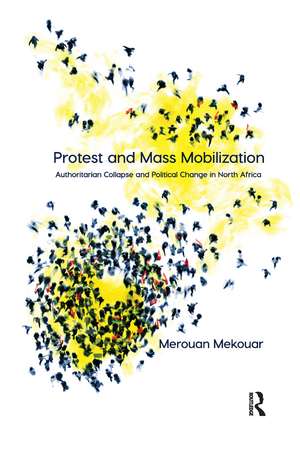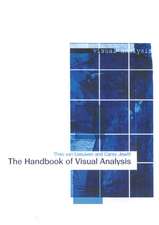Protest and Mass Mobilization: Authoritarian Collapse and Political Change in North Africa
Autor Merouan Mekouaren Limba Engleză Paperback – 30 iun 2020
| Toate formatele și edițiile | Preț | Express |
|---|---|---|
| Paperback (1) | 259.98 lei 6-8 săpt. | |
| Taylor & Francis – 30 iun 2020 | 259.98 lei 6-8 săpt. | |
| Hardback (1) | 818.67 lei 6-8 săpt. | |
| Taylor & Francis – 11 mar 2016 | 818.67 lei 6-8 săpt. |
Preț: 259.98 lei
Preț vechi: 311.41 lei
-17% Nou
Puncte Express: 390
Preț estimativ în valută:
49.75€ • 52.01$ • 42.04£
49.75€ • 52.01$ • 42.04£
Carte tipărită la comandă
Livrare economică 07-21 martie
Preluare comenzi: 021 569.72.76
Specificații
ISBN-13: 9780367596965
ISBN-10: 0367596962
Pagini: 180
Dimensiuni: 156 x 234 mm
Greutate: 0.45 kg
Ediția:1
Editura: Taylor & Francis
Colecția Routledge
Locul publicării:Oxford, United Kingdom
ISBN-10: 0367596962
Pagini: 180
Dimensiuni: 156 x 234 mm
Greutate: 0.45 kg
Ediția:1
Editura: Taylor & Francis
Colecția Routledge
Locul publicării:Oxford, United Kingdom
Cuprins
1 Introduction 2 Tunsia’s Intermediate Actors: Bridging the Popular Divide and Making the Revolution 3 Libya’s Revolution: How Qaddafi’s Friends Made the Revolution.4 Algeria: Social Mobilization Routinized 5 Morocco’s Aborted Social Mobilization: All Behind the King 6 The Media in the Arab Spring 7 Conclusion
Notă biografică
Merouan Mekouar is a political scientist and professor of International Development Studies at York University and a senior fellow at the inter-university consortium of Arab and Middle Eastern Studies at McGill University. He works on social movements and authoritarian collapse in North Africa and the Middle East.
Recenzii
This context-sensitive monograph is a great contribution to the literature on social mobilization in the largely understudied Maghreb region. It provides a unique examination of the dialectical process of social mobilization and state repression based on interviews with activists and members of the security services. Definitely a must read book.Osire Glacier, Bishop’s University, Canada
Mekouar’s theoretically unique and narratively rich book is a required-read for students of the Middle East and practitioners who want to understand how the regimes, the opposition movements and ordinary citizens reacted in a way that stimulated or failed mobilization in Tunisia, Libya, Algeria and Morocco. Any MENA or social movement syllabus must include this work for a better understanding of the Arab Uprisings and its continuing legacies on the region.
Ekrem Karakoç, Binghamton University, SUNY, USA
Merouan Mekouar tackles a central question not yet answered by the vast literature on the Arab uprisings: why do some small acts of protest spark revolutionary mobilization while others do not? By examining successful as well as failed mobilizations, he develops an original approach that brings process-tracing models into dialogue with theories of information cascades. A must-read for those interested in the origins and timing of the Arab uprisings and revolutions in general.
Jillian Schwedler, City University of New York, USA
Mekouar’s theoretically unique and narratively rich book is a required-read for students of the Middle East and practitioners who want to understand how the regimes, the opposition movements and ordinary citizens reacted in a way that stimulated or failed mobilization in Tunisia, Libya, Algeria and Morocco. Any MENA or social movement syllabus must include this work for a better understanding of the Arab Uprisings and its continuing legacies on the region.
Ekrem Karakoç, Binghamton University, SUNY, USA
Merouan Mekouar tackles a central question not yet answered by the vast literature on the Arab uprisings: why do some small acts of protest spark revolutionary mobilization while others do not? By examining successful as well as failed mobilizations, he develops an original approach that brings process-tracing models into dialogue with theories of information cascades. A must-read for those interested in the origins and timing of the Arab uprisings and revolutions in general.
Jillian Schwedler, City University of New York, USA
Descriere
Why and how do some acts of protest trigger mass mobilization while others do not? Using the cases of Morocco, Algeria, Tunisia, and Libya, Mekouar argues that successful mass mobilization is the result of a surprise factor, whose impact and exceptionality is amplified by the presence of influential political agents during the early phase of protes



















